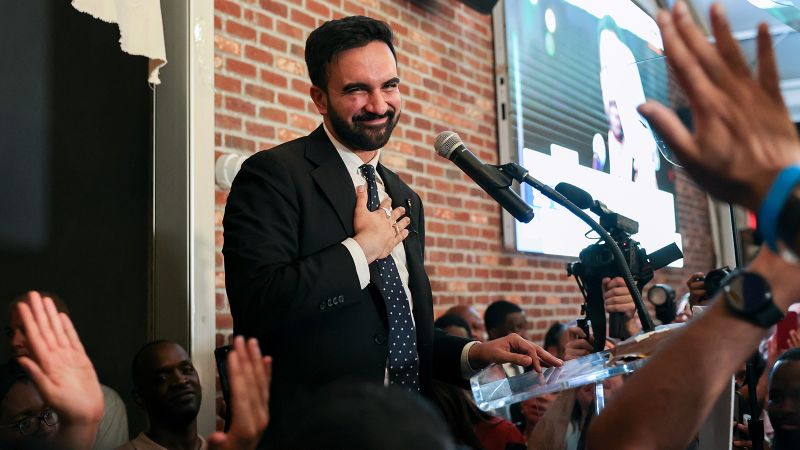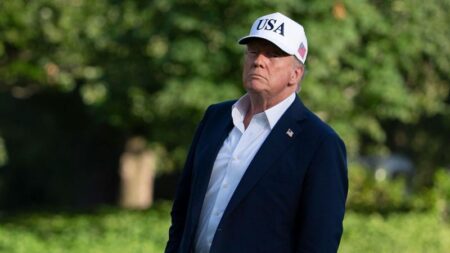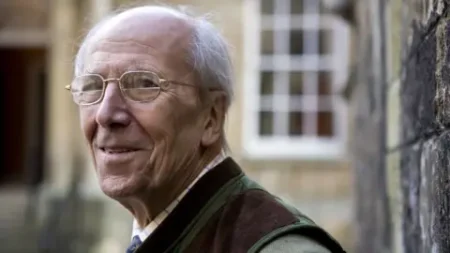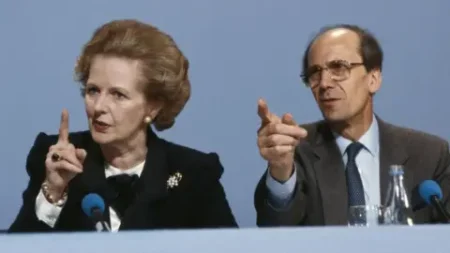On a pivotal Tuesday in New York City, Zohran Mamdani emerged as the voice of progressive change in the Democratic mayoral primary, turning the political landscape upside down with a stunning bid for leadership. Riding a wave of progressive demands, he secured a considerable lead against former Governor Andrew Cuomo, a figure mired in controversy and allegations. At just 33 years of age, Mamdani’s campaign resonated deeply with younger voters and members of the party seeking a renewed commitment to addressing the pressing issues of affordability and safety in the city.
Mamdani’s campaign rhetoric emphasized his vision of a city that prioritizes the needs of its residents, asserting, “I will fight for a city that works for you, that is affordable for you, that is safe for you.” His spirited address post-midnight celebrated a night of triumph, capturing the imaginations of many by declaring, “We can be free and we can be fed. We can demand what we deserve.” This momentum not only galvanized support within the city but also struck a nerve nationally within the Democratic Party as other leaders grapple with the difficulty of aligning with the fervent calls for authentic representation.
While the formal outcome of the primary would not be confirmed until July 1—when New York City forecasts initial ranked-choice results—Mamdani’s commanding lead was recognized by Cuomo, who publicly acknowledged his defeat. “Tonight is his night. He deserved it. He won,” Cuomo stated, calling attention to the seismic shift in voter sentiment.
Mamdani’s rise was remarkable, particularly given the ubiquitous celebrity of Andrew Cuomo, who possessed significant financial backing and endorsements from established party leaders and unions. Yet, Mamdani campaigned effectively on core issues, portraying his ideas not as pie-in-the-sky dreams but as pragmatic solutions to real-life challenges. He positioned his platform around affordability, an issue that had directly contributed to the Democratic loss in the previous election cycle in 2024.
Engaging with those who disagreed with him, he adopted a campaign style that involved open communication and cross-endorsements with rivals. His relentless efforts, which included a memorable walk spanning the length of Manhattan, illustrated his commitment to accessibility and person-to-person engagement. As he asserted on social media, “New Yorkers deserve a Mayor they can see, hear, even yell at.”
The political landscape shifted further as figures like Dan Pfeiffer, a former senior adviser to President Obama, commented on Mamdani’s strategy, suggesting that there was much for the broader Democratic establishment to learn from his approach. More significantly, the implications of his victory resonated with Republican commentators who seized the opportunity to label Mamdani as “the new face” of the Democratic Party—an assertion that could potentially disadvantage Democrats in competitive districts.
However, Mamdani’s path was not without controversy. Pro-Cuomo forces attempted to undermine his campaign, suggesting his previous comments about Israel’s policies amounted to antisemitism. He faced scrutiny regarding his defense of the phrase “globalize the intifada” amidst rising tensions. Nevertheless, Mamdani stood firm behind a progressive platform that proposed innovative solutions like free public transit and frozen rents—elements that could simultaneously affirm his commitment to equity while inviting critiques of extremism from opposition parties.
As the political ballet unfolded, the ramifications of Mamdani’s ascension for the Democratic Party remained uncertain, presenting a unique lens into vital voter concerns and influential figures. Notably, if Mamdani successfully navigates the upcoming general election in November, he would be celebrated as the city’s first Muslim mayor. His ability to address sensitive issues—like his critiques of Israel—without backtracking, has showcased a new paradigm of political communication that resonates with a segment of the electorate demanding transparency and conviction from their leaders.
The results of the primary laid bare not only the limitations of Cuomo’s campaign but also the power of grassroots movements that Mamdani navigated with finesse. Despite Cuomo’s elite backings, he was unable to harness the same enthusiasm that a relative outsider like Mamdani generated, demonstrating the profound impact of authentic engagement in modern-day politics.
As New York City gears up for the general election, where Mamdani will contend against first-term Mayor Eric Adams—who is running as an independent candidate—the dynamics of the race will shift into an arena fraught with unpredictability. Adams has faced criticism for his policies and actions in office, positioning himself as a champion for law enforcement and a proponent of traditional Democratic values, contrasting sharply with Mamdani’s more progressive slate.
The outcomes of Mamdani’s campaign and the associated debates will shape not only the trajectory of New York City’s leadership but also hint at broader shifts within the Democratic Party that may be necessary to respond to rising progressive sentiment and voter demands across the nation. As Mamdani’s supporters revel in a palpable sense of hope for change and equity, incumbent politicians must reckon with the evolving expectations of their constituents as they prepare











